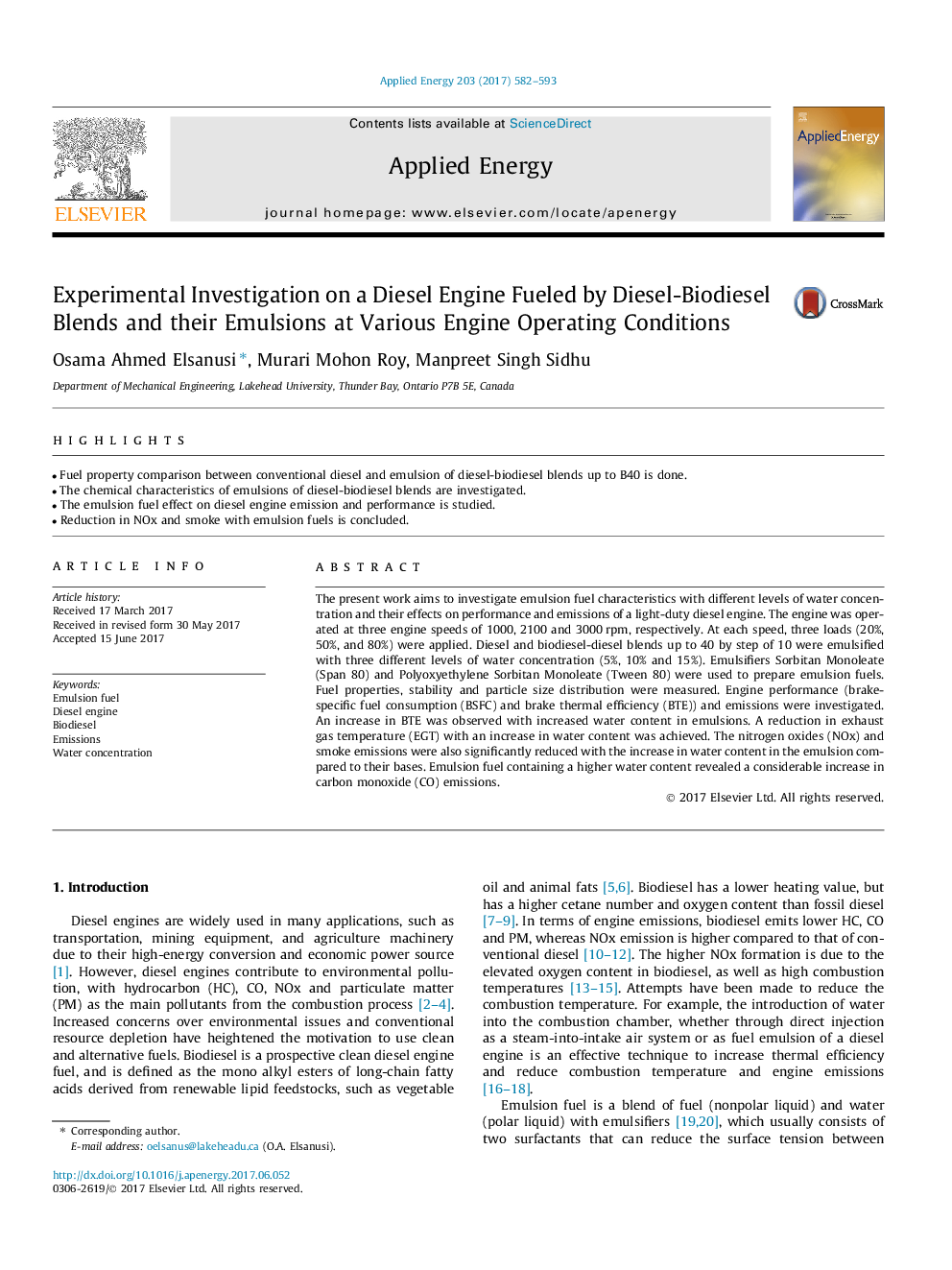| Article ID | Journal | Published Year | Pages | File Type |
|---|---|---|---|---|
| 4915792 | Applied Energy | 2017 | 12 Pages |
Abstract
The present work aims to investigate emulsion fuel characteristics with different levels of water concentration and their effects on performance and emissions of a light-duty diesel engine. The engine was operated at three engine speeds of 1000, 2100 and 3000Â rpm, respectively. At each speed, three loads (20%, 50%, and 80%) were applied. Diesel and biodiesel-diesel blends up to 40 by step of 10 were emulsified with three different levels of water concentration (5%, 10% and 15%). Emulsifiers Sorbitan Monoleate (Span 80) and Polyoxyethylene Sorbitan Monoleate (Tween 80) were used to prepare emulsion fuels. Fuel properties, stability and particle size distribution were measured. Engine performance (brake-specific fuel consumption (BSFC) and brake thermal efficiency (BTE)) and emissions were investigated. An increase in BTE was observed with increased water content in emulsions. A reduction in exhaust gas temperature (EGT) with an increase in water content was achieved. The nitrogen oxides (NOx) and smoke emissions were also significantly reduced with the increase in water content in the emulsion compared to their bases. Emulsion fuel containing a higher water content revealed a considerable increase in carbon monoxide (CO) emissions.
Related Topics
Physical Sciences and Engineering
Energy
Energy Engineering and Power Technology
Authors
Osama Ahmed Elsanusi, Murari Mohon Roy, Manpreet Singh Sidhu,
